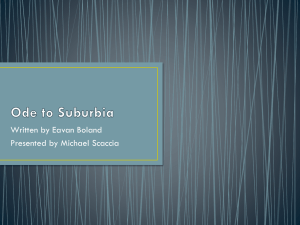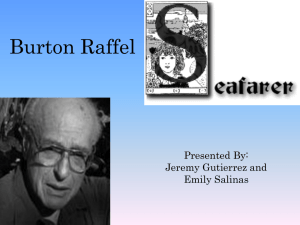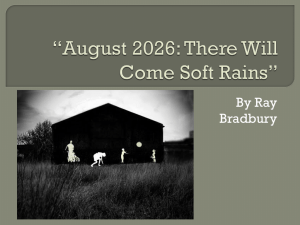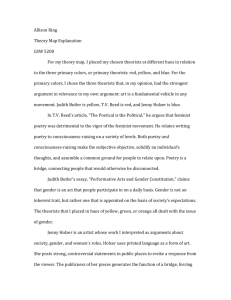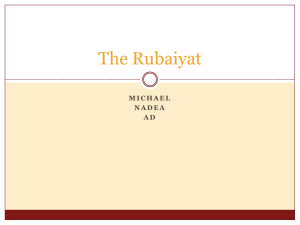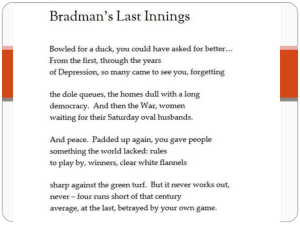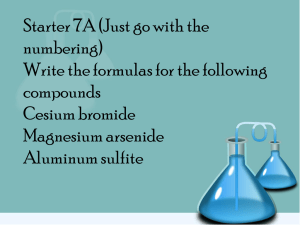File - Jasmine Thornton E
advertisement
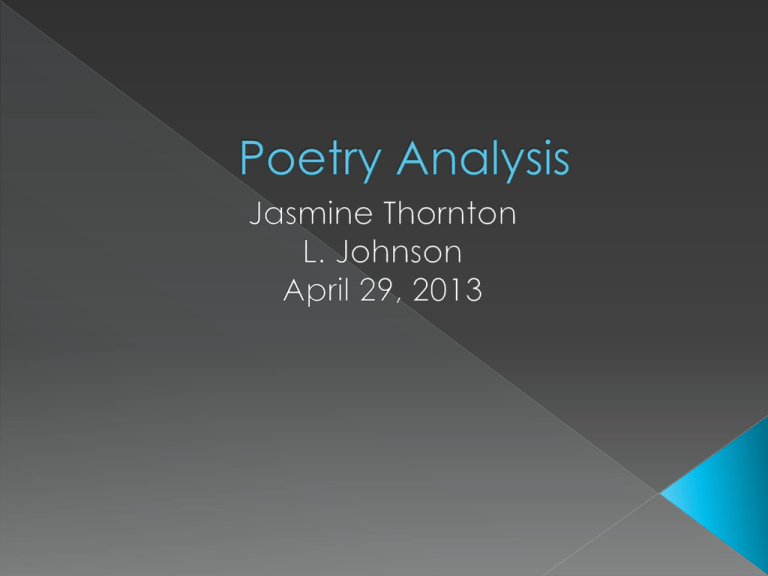
Title: Naming of Parts Author: Henry Reed; as a British poet translator. He was born Birmingham and educated at King Edward School. One of his most famous poems is Lessons of the War. He studied for an MA and worked as a teacher and a journalists. He was called into the war in 1941. After the war he worked for the BBC as a radio broadcaster and playwright, where his most memorable set of productions was the Hilda Tablet series in the 1950s. The series started with A Very Great Man Indeed, which purported to be a documentary about the research for a biography of a dead poet and novelist called Richard Shewin. This drew in part on Reed's own experience of researching a biography of the novelist Thomas Hardy. However, the 'twelve-tone composers' Hilda Tablet, a friend of the late Richard Shewin, became the most interesting character in the play; and in the next play, she persuades the biographer to change the subject of the biography to her telling him "not more than twelve volumes". Dame Hilda, as she later became, was based partly on Ethel Smyth and partly on Elisabeth Lutyens (who was not pleased, and considered legal action). Reed's most famous poem is Lessons of the War, a witty parody of British army basic training during World War II, which suffered from a lack of equipment at that time. Originally published in New Statesman and Nation (August 1942), the series was later published in A Map of Verona in 1946, and was his only collection to be published within his lifetime. Another anthologized poem is Chard Whitlow, a clever satire of T.S Elliot Burnt Norton. Eliot himself was amused by Chard Whitlow's mournful imitations of himself ("As we get older we do not get any younger ..."). Unfortunately for Reed he was forever being confused with the much better known Sir Herbert Read; the two men were unrelated. Reed responded to this confusion by naming his alter ego biographer in the Hilda Tablet plays "Herbert Reeve" and then by having everyone else get the name slightly wrong. The Papers of Henry Reed are kept safe at the University of Birmingham Special Collections The plot is basically about a Drill Sergeant instructing a class of soldiers on how to assemble their rifle's. The speaker of the poem is kind of daydreaming, staring at nature. Basically He's upset that Today we have naming of parts, when he is in Japan surrounded by nature's beauty. In his poem Naming of Parts, Henry Reed uses the literary devices of repetition, alliteration, and mood to create a teaching, defending, vivid but interesting picture in the mind of his readers. The theme is a satire of martial order. Each stanza is four lines of droning military nomenclature followed by two lines of metaphorical poetry. He is showing us how silly and mundane the drills are. How unnatural the military (war) is. The language is very modern to create a enthusiastic tone. Specific examples from the poem that analyze words that allude to the theme is; “The blossoms Are fragile and motionless, never letting anyone see Any of them using their finger.” “The branches Hold in the gardens their silent, eloquent gestures, Which in our case we have not got.” The figurative language of the poem are simile, metaphor, alliteration, and imagery to enhance the meaning of the poem. Example: “To-day we have naming of parts.” “Japonica Glistens like coral in all of the neighboring gardens.” The poem says that today they will have naming of parts. It says that yesterday they had daily cleaning and tomorrow will be what to do after firing but today we have naming of parts. The poem means that an inductee soldier is being shown how to care for and use his rifle by a professional arms instructor. the main message of the whole sequence is that war takes people away from the things that they really care about. Example: “This is the safety-catch, which is always released with an easy flick of the thumb and please do not let me see anyone using his finger. You can do it quite easy If you have any strength in your thumb. “ Naming of parts is basically a war based poem written by someone who use to be in the war and have had experience in the war force. It was talking about lessons that will be learned about shooting. The mood, theme, figurative language, and poetic devices all contribute to the meaning of the poem because they all tell a specific part of the poem in a different way. Helium.com Poetry Analysis Naming of Parts Poemhunter.com En.wikipedia.org/wik/Henry reed Adb.anu.edu.au/biography/Henry reed Solearabiantree.net


